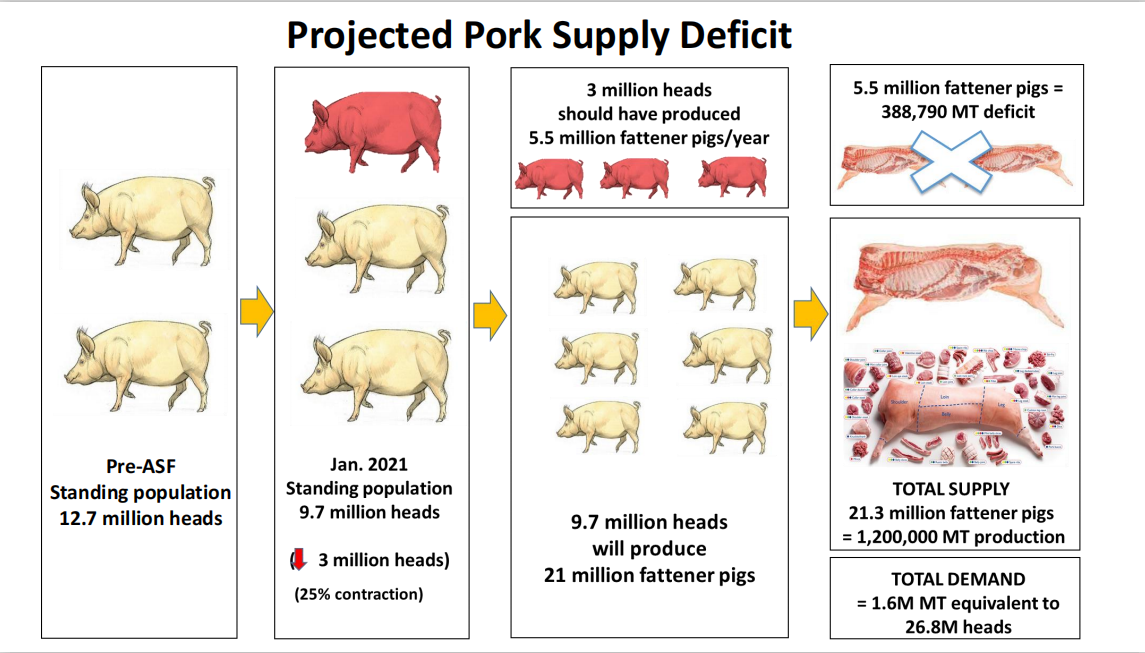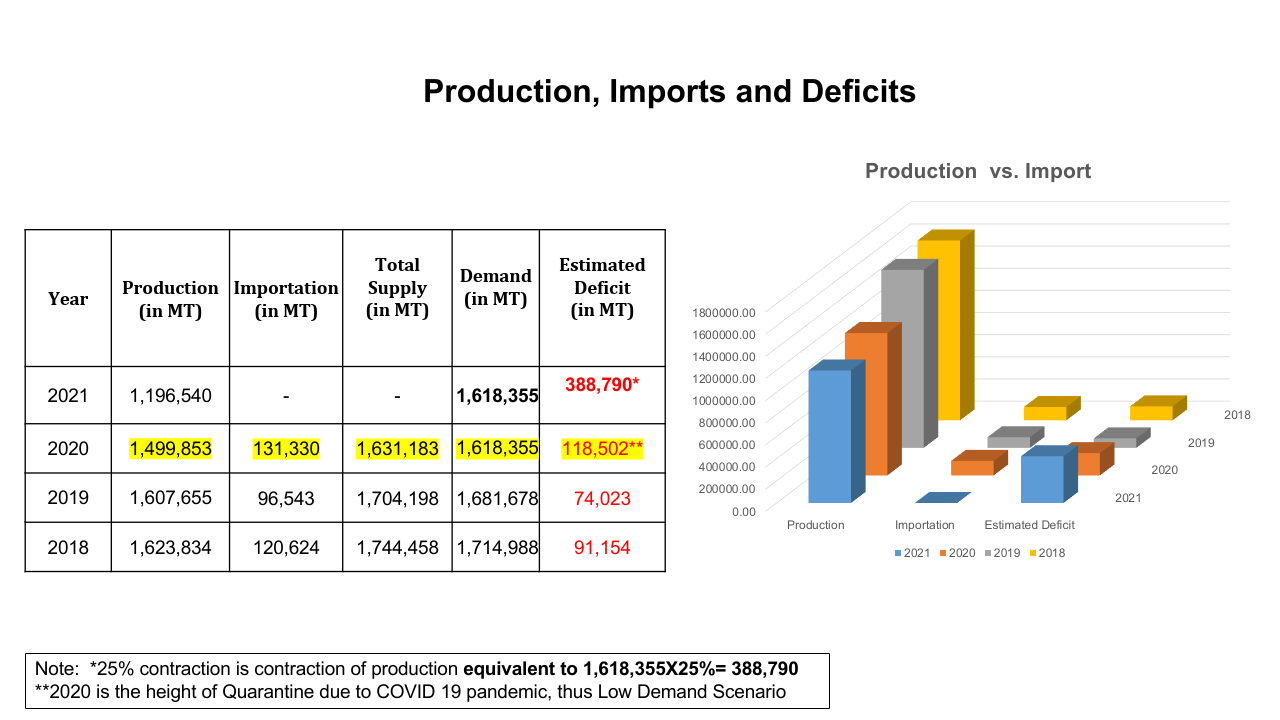By Alec Go
Agriculture Secretary William Dar on Monday night (April 19) clarified the country is only importing pork to address the ongoing supply shortage amid the prevailing problem of African swine fever (ASF) that has decimated local pig stocks.
Based on the report he presented to President Rodrigo Duterte and other Cabinet members, the estimated pork deficit of the country for 2021 is 388,790 metric tons.
The demand for pork this year, based on an estimate of 15 kilograms per capita consumption, is 1.6 million metric tons. However, the supply is only around 1.2 million metric tons.
“Talagang may pagkukulang po tayo ng supply dito sa taon na ito gawa namang nag-shrink, bumaba ‘yong local food production ng 25 percent,” Dar said.
[There is a supply shortage due to the contraction of local food production by 25 percent.]

Department of Agriculture (DA) data show that the standing population of hogs before the onset of ASF was 12.7 million heads. In January 2021, it declined to 9.7 million heads, a loss of 3 million heads. The population lost could have produced 5.5 million fattener pigs per year.
Because of this, there will only be 21.3 million fattener pigs equivalent to 1.2 million metric tons production, which will not meet the higher projected demand for 26.8 million hogs or 1.6 million metric tons.
Pork prices had gone up to P400 per kilogram, around the same price as beef, before the implementation of a price ceiling in February 2021. At the time, the President issued Executive Order No. 124, which set prices of pork pique at P270 per kilogram and pork liempo at P300 per kilo, for a 60-day period.
To address the shortage, the government has allowed a reduction of the pork import tariff. This will cut pork prices in the market. Executive Order No. 128, signed by Duterte on April 4, reduces tariff rates on pork imports between 5% and 20%, from 30% to 40%.
“The EO 128 was a result of a painstaking process, that’s why ‘yung lowering of tariff will really lower down pork prices in the market,” Dar said.
“We are not killing the local hog industry. Ang inaangkat lang po natin… ay ‘yong kakulangan lang natin nitong taon [We are only importing what we need to cover the deficiency for this year].”
He added that the 350,000-metric ton increase of the minimum amount of pork imports under minimum access volume (MAV) that they have been mulling over will also ease the current situation.

In 2020, the estimated pork deficit was 118,504 metric tons, higher than the 74,023 metric tons in 2019 and the 91,154 metric tons in 2018.
There is currently no approved vaccine for ASF, but the Philippines is now coordinating with the United States Department of Agriculture (USDA) which is testing a vaccine they developed against ASF.
